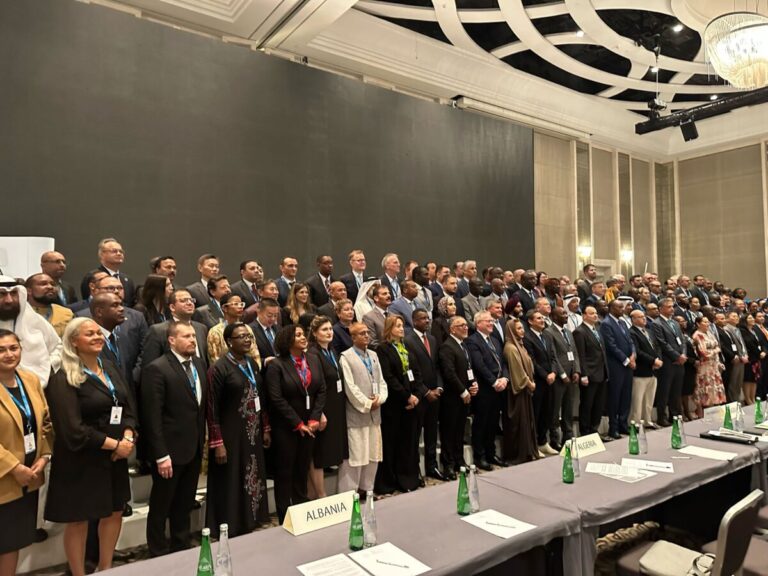The 14th meeting of the International Renewable Energy Agency (IRENA) last week in Abu Dhabi underscored the central role of geopolitics and security in today’s global energy landscape. The meeting also called for greater action to achieve the COP28 target of tripling the deployment of renewable energy sources by 2030.
The opening of IRENA’s 14th meeting by President Francesco La Camera highlighted the urgency of implementing specific strategies to help the world meet the 2030 target set at last year’s COP28 conference in Dubai. The goal is to triple global solar capacity by the end of this decade.
“We need to triple the capacity of all renewable energy sources by the end of this decade,” La Camera said. “This requires concrete and immediate action.”
However, he noted that this ambitious goal must be achieved in a global energy landscape currently dominated by polarization and geopolitical unrest.
Need for speed
“About 87% of all new energy in 2023 came from renewable energy sources,” La Camera said. “However, these global figures hide important nuances. Investments remain concentrated in a few technologies, such as solar and wind energy, while achieving the triple target requires the exploitation of all renewable sources. A worrying trend is also the continued geographical concentration.”
The African continent is expected to be key to filling this gap, with capacity increasing from around 26 GW today to 300 GW by 2030.
“We need a master plan for the continent,” said Amani Abou-Zeid, African Union commissioner for infrastructure and energy. “We said enough at COP28: now is the time for real action and real implementation.
Access to finance is one of the biggest challenges facing African countries, along with many other emerging economies.
“The problem has to do with the cost of capital,” said Barbadian Energy and Business Minister Lisa Cummins. “We must accelerate timelines and support climate finance.”
Kadri Simson, EU Commissioner for Energy, stressed the need to address such issues at the upcoming COP29 event in Baku, Azerbaijan.
“There should be a monitoring framework that allows us to track what is happening as 132 countries have agreed to triple renewables and double energy,” Simson said. “We are ready with strategies, ideas, processes and decisions. It’s just time for implementation.”
Political concerns
The discussion “Ministerial Roundtable: Geopolitics of Energy Security” during the meeting underlined the importance of geopolitical considerations in the current political debate on energy. Such concerns have become particularly important since the beginning of the war in Ukraine, as well as the ongoing conflict in Israel and Palestine.
pv magazine
The April edition of pv magazine considers a $9 billion subsidy package for rooftop solar in India, examines energy community moves in the US and Italy – as well as the decline in renewables in Australia – and extends into Egypt, Central Asia and the Middle East. All that plus a special section previewing this year’s smarter E Europe energy exhibition.
“Geopolitical risks are not an argument for inaction – on the contrary,” Hans Olav Ibrekk, Norway’s special envoy for climate and security, said at the opening of the panel.
Elizabeth Press, director of planning and program support at IRENA, noted the urgency of becoming more energy independent for many countries around the world. She said that “86% of the population lives in the next importing country… but everyone has something.” She added that all countries have a certain amount of renewable energy sources to exploit.
“We have replaced a significant part of natural gas with renewable energy sources and we have succeeded in stabilizing the markets in Europe,” said Simson. “Last year, 70 GW of renewable energy sources and 3 million heat pumps were installed across Europe.”
Furthermore, Anna Shpitsberg – Deputy Assistant Secretary for Energy Transformation at the US Department of State – stated that “diversification of investments is critical to mitigating energy risks, not creating new risks.”
This content is copyrighted and may not be reused. If you would like to collaborate with us and reuse some of our content, please contact: editors@pv-magazine.com.


